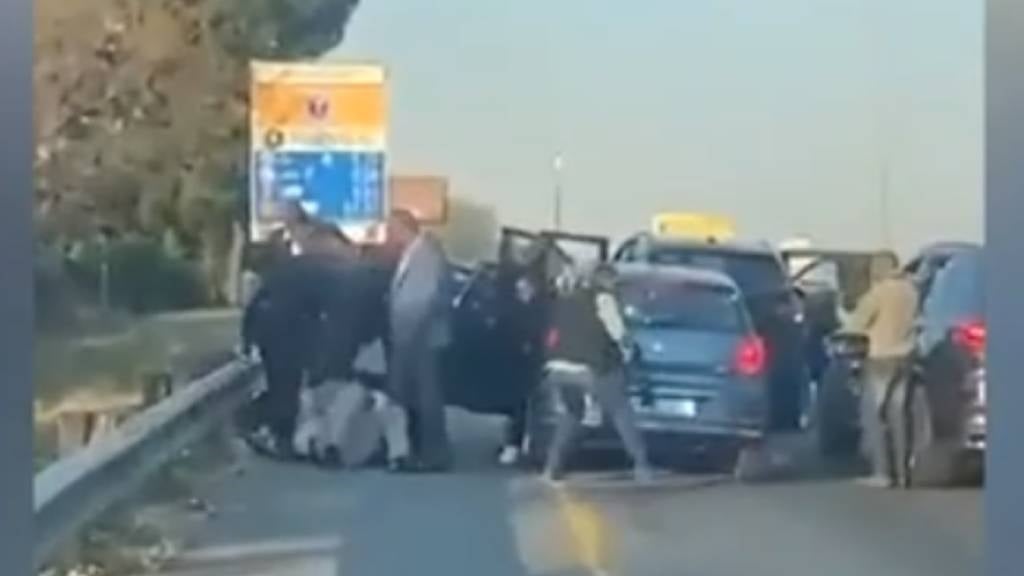
A video which went viral showing a roadside assault on the N1 does little to counter an increasingly ingrained trust deficit towards the SAPS, writes Jan Hofmeyr.
The recent roadside assault on the N1 between Johannesburg and Pretoria, involving the VIP security detail of Deputy President Paul Mashatile, once again raises uncomfortable questions about the norms and values that underpin our democratic state's relationship towards its citizens.
A video, widely circulated on social media platforms, depicts distressing scenes of Mashatile's gun-toting men unleashing disproportionate violence on what turned out to be plain-clothed members of the South African Defence Force. The footage, which does not suggest any apparent threat or resistance presented by the victims of the incident, has left South Africans dumbfounded.
At this stage, the broader context and circumstances that may have precipitated the incident are unclear. Yet, while an investigation into the matter is ongoing, the immediate optics of the video that has since gone viral is terrible. Not surprisingly, some are already drawing comparisons between the policing ethos that triggered this behaviour and that which provided widely publicised Marikana Massacre in 2012 and other instances of police violence, such as the killing of Andries Tatane several years prior.
Trust deficit
Inevitably, this does little to counter an increasingly ingrained trust deficit towards the SAPS.
In the most recent South African round of the Afrobarometer public opinion survey conducted by the Institute for Justice and Reconciliation in November and December last year, less than a third of South Africans indicated that they trust the police to execute their mandate. Judged by some of the survey's other findings, this should not come as a revelation.
Only 11% of respondents thought that government is doing a decent job in combatting rampant levels of crime, with less than four out of every ten respondents reporting a police presence in the areas where they live. Alarmingly, close to two-thirds responded they believe that most or all SAPS officials are corrupt, while a stunning 72% indicated that they fear retribution for reporting instances of corruption to the authorities.
SEE | CARTOON BY CARLOS: Spot the difference
Such findings should concern us because they point to broader issues around the quality of our democracy and the broader legitimacy of the state itself.
If German sociologist, Max Weber, was correct in suggesting that a monopoly on the legitimate use of force within a specific territory is a defining characteristic of the state, then it implicitly means that state legitimacy is a precondition for the enforcement of the rule of law. When, however, the custodians of the state abuse its monopoly on violence in service of elites at the expense of the broader populace, state legitimacy and that of its constitutive institutions is bound to suffer.
The Afrobarometer data suggests that an erosion of legitimacy is already under way. Seven out of ten South Africans (70%) indicated that they are not happy with the way democracy works in South Africa, with 49% responding that the country is a "democracy with major problems" and a further 14% feeling that the country is not deemed fit to be called a democracy at all. As is the case with the police, confidence in most public institutions, including national, provincial and local government have reached an all-time low. Whether such perceptions are accurate or not, they represent the opinions of people from which the state should be deriving its legitimacy.
How do we recover from this? Unfortunately, given the systemic nature of the rot that pervades our governance system, there are no easy fixes. Such is its force that even the many competent and honest civil servants in our public service find it hard to resist its destructive force and momentum. One thing is certain: We do not find ourselves where we are because of our democratic Constitution, but because of its perversion by an extractive culture that has metastasised through ought our system of governance.
As such, a first tentative step would be the reinvigoration of oversight institutions intended to keep those who exercise state power in check. As Judge Raymond Zondo recently indicated in relation to the state capture report findings, this requires concerted legislative action and not blind faith in a change of heart among those that hold power.
In this regard, Zondo has been quite scathing about Parliament's lack of enthusiasm in playing its role in this regard. One can add that the longer it does so, the more complicit it becomes in the erosion of the democratic underpinnings of our state.
READ | EXPLAINER: Former presidential protector explains what should have happened instead of 'thuggery'
In the meantime, the sensitivity with which relevant institutions deal with this most recent travesty will become a barometer for the state's commitment to democratic and humane governance. While some may be reluctant and constrained by a governance culture that prioritises conformity rather than bravery, other institutions can lead the way.
In this regard, the Independent Police Investigative Directorate's (IPID) investigation into the matter presents an opportunity for the kind of transparency and accountability South Africans deserve. This is all the more important as we approach the marking of the country's political transition three decades ago, away from a system that used violence to protect the safety of a few at the expense of the many.
- Jan Hofmeyr is IJR Programme Head for Research and Policy
Disclaimer: News24 encourages freedom of speech and the expression of diverse views. The views of columnists published on News24 are therefore their own and do not necessarily represent the views of News24.




 Publications
Publications
 Partners
Partners
























